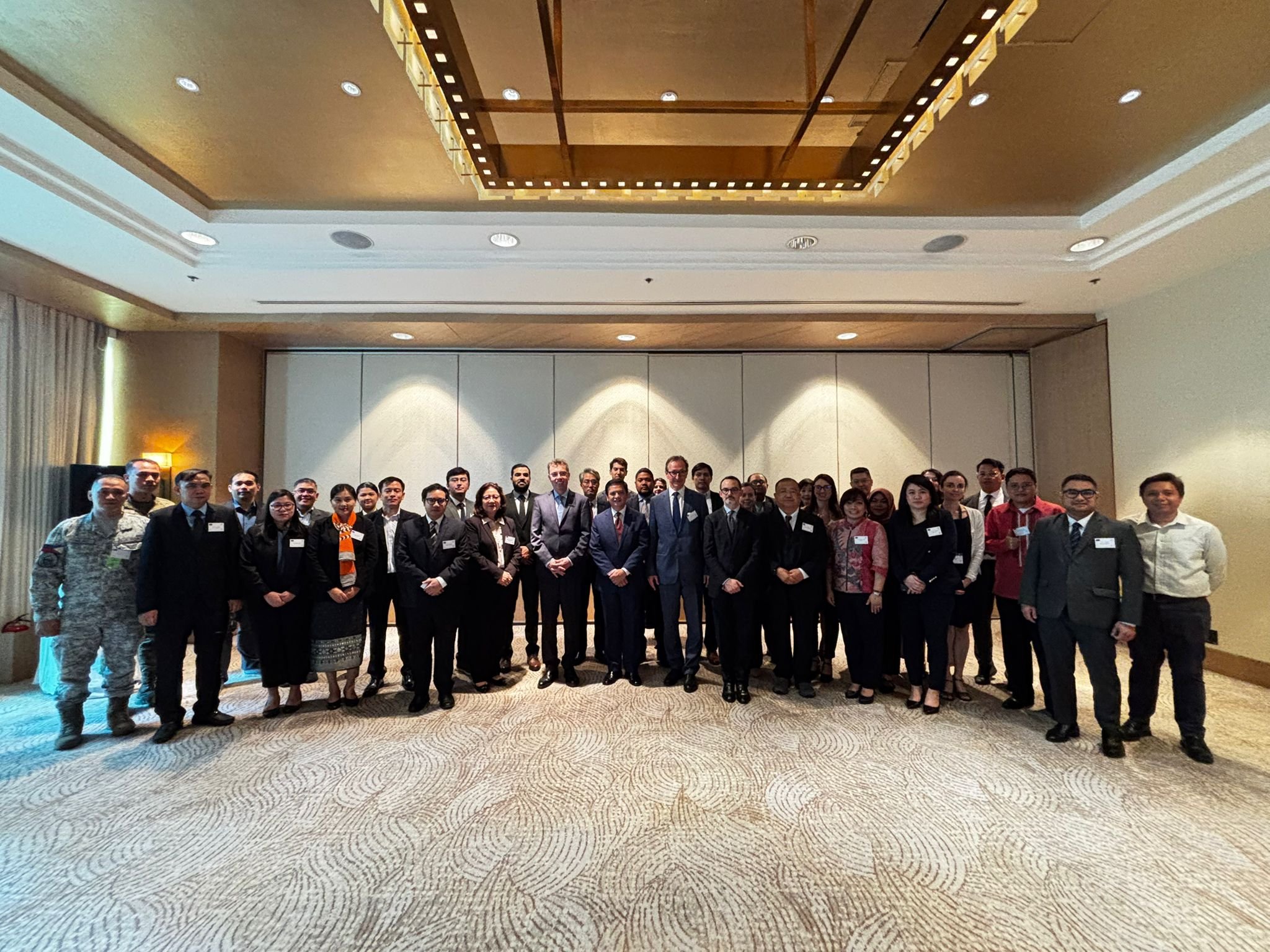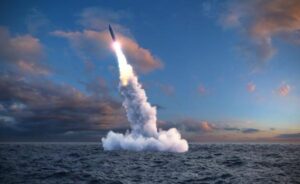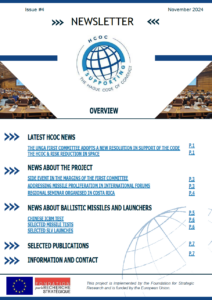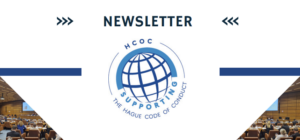BALLISTIC MISSILE DEVELOPMENTS IN ASIA-PACIFIC: REDUCING RISK THROUGH TRANSPARENCY AND CBMS
22-23 January 2025
Manila, Philippines
On 22-23 January 2025, the FRS in collaboration with the government of the Philippines hosted a regional seminar dedicated to Asia-Pacific. More than 50 participants representing 12 countries took part to this event.
AGENDA
Introduction
Mr Alexandre Houdayer, Secretary General, Fondation pour la Recherche stratégique (FRS)
Amb. Johann Brieger, Ambassador to the Philippines, Ministry of Foreign Affairs, Austria
Amb. Massimo Santoro, Ambassador, EU Delegation in the Philippines
H.E. Charles C. Jose, Undersecretary for Multilateral Affairs and International Economic Relations, Department of Foreign Affairs of the Philippines
First session: Ballistic missiles in Asia-pacific: the landscape
Moderator: Ms Emmanuelle Maitre, Research Fellow, FRS
Ms Zuzanna Gwadera, Research Assistant and Programme Administrator, IISS (remotely)
Mr Javed Alam, Research Associate for the Nuclear Vertical at the Centre for Air Power Studies
Second session: Drivers of missile dissemination in the region and potential risks
Moderator: Mr Simon Menet, Research Fellow, Fondation pour la Recherche stratégique (FRS)
Prof. Mely Caballero-Anthony, Professor of International Relations and Head of the Centre for Non-Traditional Security (NTS) Studies at the S. Rajaratnam School of International Studies (RSIS), Nanyang Technological University (NTU)
Dr Kil Joo Ban, Assistant Professor, Korea National Diplomatic Academy
Ms Emmanuelle Maitre, Senior Research Fellow, Fondation pour la Recherche stratégique (FRS)
Third session: Confidence-building measures and missiles
Moderator: Ms Emmanuelle Maitre, Research Fellow, FRS
Amb. Álvaro Domingo Jara Bucarey, Ambassador, Embassy of Chile in Manila (Representative of HCoC Chair)
Ms Lioba Bammer, Representative of the HCoC Executive Secretariat, Ministry of Foreign Affairs, Austria
Mr Alexandre Houdayer, Secretary General, Fondation pour la Recherche stratégique (FRS)

Fourth Session: Missile crisis simulation exercises
Mr Simon Menet, Research Fellow, Fondation pour la Recherche stratégique (FRS)
Ms Emmanuelle Maitre, Research Fellow, Fondation pour la Recherche stratégique (FRS)
Fifth session: Space developments and spread of dual-use technologies
Moderator: Ms Emmanuelle Maitre, Senior Research Fellow, Fondation pour la Recherche stratégique (FRS)
Prof. Setsuko Aoki, Professor of Law, Keio University Law School, Japan
Mr Alexandre Houdayer, Secretary General, FRS
Dr Yaries Mahardika Putro, Lecturer of International Law, Universitas Surabaya (UBAYA) (remotely)
Dr Joel Joseph S. Marciano, Jr., Director General, Philippine Space Agency
Sixth session: Nonproliferation and cooperation: finding the balance
Moderator: Mr Alexandre Houdayer, Secretary General, FRS
Ms. Karla Mae G. Pabeliña, Associate Fellow, Asia-Pacific Leadership Network
Ms Ida Scarpino, Political Affairs Officer, UNRCPD


